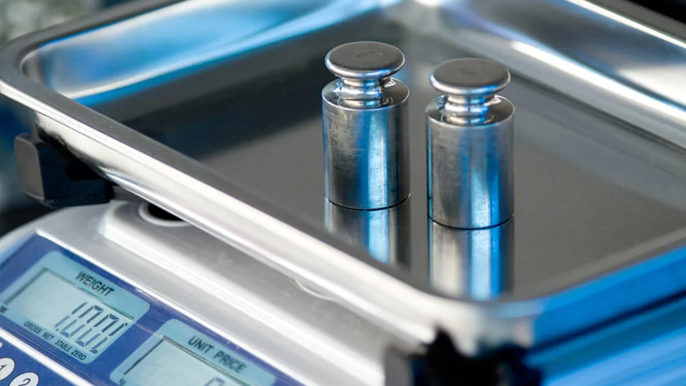In industries ranging from pharmaceuticals to manufacturing, accurate weighing is crucial for ensuring product quality, consistency, and regulatory compliance. Scales and balances are the tools that provide this precision, enabling industries to achieve accurate measurements, control processes, and maintain standards. As technology continues to advance, modern scales and balances have become more sophisticated, offering enhanced features that improve accuracy, usability, and connectivity.
The Role of Scales and Balances in Industry
Scales and balances are used to measure the weight of various materials, from raw ingredients to finished products. In industries like pharmaceuticals, where precise measurements are essential, scales and balances play a critical role in ensuring that products meet strict regulatory standards. For example, in the production of medications, even the slightest deviation in weight can impact the effectiveness and safety of the final product.
In the manufacturing industry, scales and balances are used for quality control, ensuring that products are consistent in weight and meet specified tolerances. Accurate weighing is also essential in industries like food and beverage, where product consistency is critical for maintaining brand reputation and complying with regulations.
Scales and balances are also used in scientific research, where precise measurements are necessary for experiments and data analysis. In laboratories, analytical balances are used to measure small amounts of substances with high accuracy, enabling researchers to achieve reliable results.
Technological Advancements in Scales and Balances
The integration of digital technology has transformed scales and balances, making them more accurate, user-friendly, and connected. Modern digital scales offer features such as touchscreens, programmable functions, and wireless connectivity, allowing users to customize settings and store data for later analysis.
One of the most significant advancements in weighing technology is the development of high-precision balances that can measure extremely small weights with exceptional accuracy. These balances are used in industries like pharmaceuticals and scientific research, where even the slightest variation can have significant consequences.
Another important development is the integration of scales and balances with software systems. This allows for automated data collection, analysis, and reporting, reducing the risk of human error and improving efficiency. For example, in a production environment, scales can be connected to a central database, enabling real-time tracking of material usage and ensuring that products meet specified weight tolerances.
Types of Scales and Balances
There are various types of scales and balances, each designed for specific applications:
- Analytical Balances: These are highly precise instruments used in laboratories for measuring small amounts of substances. They are capable of measuring down to the microgram level and are essential for scientific research and pharmaceutical production.
- Industrial Scales: Used in manufacturing and production environments, industrial scales are designed to handle large weights and provide accurate measurements. They are often used for weighing raw materials, finished products, and packaging.
- Precision Balances: These balances offer a high level of accuracy and are used in applications where precise measurements are required, but not to the microgram level. They are commonly used in quality control and research applications.
- Moisture Analyzers: These instruments combine weighing with drying functions, allowing for the determination of moisture content in materials. They are used in industries such as food, agriculture, and pharmaceuticals.
Applications Across Various Industries
Scales and balances are used in a wide range of industries, each with its unique requirements. In the food and beverage industry, for example, accurate weighing is essential for ensuring product consistency and meeting regulatory standards. Scales are used to measure ingredients, portion products, and control packaging processes.
In the pharmaceutical industry, scales and balances are used to ensure that medications are produced with the correct dosage. Analytical balances are used to measure active ingredients with high precision, ensuring that products are safe and effective.
The manufacturing industry also relies heavily on scales and balances for quality control. Industrial scales are used to weigh raw materials, components, and finished products, ensuring that they meet specified tolerances and are consistent in weight.
The Future of Scales and Balances
The future of weighing technology is likely to be shaped by continued advancements in digital technology and connectivity. Smart scales and balances that can communicate with other devices and systems will become more common, enabling real-time data collection and analysis.
The integration of artificial intelligence (AI) and machine learning (ML) is also expected to enhance the capabilities of scales and balances. AI-powered systems can analyze data from scales and balances, identify patterns, and make predictions that improve process control and quality.
Additionally, the trend towards miniaturization and portability will continue, with smaller, more portable scales and balances becoming available for field use. This is particularly important in industries like agriculture and environmental science, where weighing equipment needs to be easily transportable.
Conclusion
Scales and balances are essential tools for ensuring accuracy and consistency in industries where precise measurements are critical. The advancements in weighing technology have made these instruments more accurate, user-friendly, and connected, enabling industries to achieve higher levels of quality and efficiency. As technology continues to evolve, scales and balances will play an increasingly important role in maintaining standards and driving innovation across various sectors.


